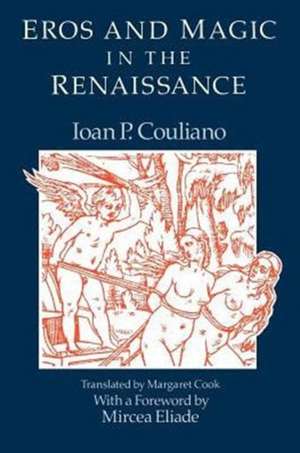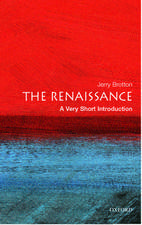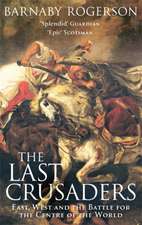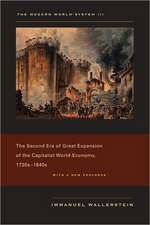Eros and Magic in the Renaissance
Autor Ioan P. Couliano Traducere de Margaret Cooken Limba Engleză Paperback – 15 noi 1987
It is a widespread prejudice of modern, scientific society that "magic" is merely a ludicrous amalgam of recipes and methods derived from primitive and erroneous notions about nature. Eros and Magic in the Renaissance challenges this view, providing an in-depth scholarly explanation of the workings of magic and showing that magic continues to exist in an altered form even today.
Renaissance magic, according to Ioan Couliano, was a scientifically plausible attempt to manipulate individuals and groups based on a knowledge of motivations, particularly erotic motivations. Its key principle was that everyone (and in a sense everything) could be influenced by appeal to sexual desire. In addition, the magician relied on a profound knowledge of the art of memory to manipulate the imaginations of his subjects. In these respects, Couliano suggests, magic is the precursor of the modern psychological and sociological sciences, and the magician is the distant ancestor of the psychoanalyst and the advertising and publicity agent.
In the course of his study, Couliano examines in detail the ideas of such writers as Giordano Bruno, Marsilio Ficino, and Pico della Mirandola and illuminates many aspects of Renaissance culture, including heresy, medicine, astrology, alchemy, courtly love, the influence of classical mythology, and even the role of fashion in clothing.
Just as science gives the present age its ruling myth, so magic gave a ruling myth to the Renaissance. Because magic relied upon the use of images, and images were repressed and banned in the Reformation and subsequent history, magic was replaced by exact science and modern technology and eventually forgotten. Couliano's remarkable scholarship helps us to recover much of its original significance and will interest a wide audience in the humanities and social sciences.
Renaissance magic, according to Ioan Couliano, was a scientifically plausible attempt to manipulate individuals and groups based on a knowledge of motivations, particularly erotic motivations. Its key principle was that everyone (and in a sense everything) could be influenced by appeal to sexual desire. In addition, the magician relied on a profound knowledge of the art of memory to manipulate the imaginations of his subjects. In these respects, Couliano suggests, magic is the precursor of the modern psychological and sociological sciences, and the magician is the distant ancestor of the psychoanalyst and the advertising and publicity agent.
In the course of his study, Couliano examines in detail the ideas of such writers as Giordano Bruno, Marsilio Ficino, and Pico della Mirandola and illuminates many aspects of Renaissance culture, including heresy, medicine, astrology, alchemy, courtly love, the influence of classical mythology, and even the role of fashion in clothing.
Just as science gives the present age its ruling myth, so magic gave a ruling myth to the Renaissance. Because magic relied upon the use of images, and images were repressed and banned in the Reformation and subsequent history, magic was replaced by exact science and modern technology and eventually forgotten. Couliano's remarkable scholarship helps us to recover much of its original significance and will interest a wide audience in the humanities and social sciences.
Preț: 255.49 lei
Nou
Puncte Express: 383
Preț estimativ în valută:
48.89€ • 51.32$ • 40.58£
48.89€ • 51.32$ • 40.58£
Carte tipărită la comandă
Livrare economică 10-24 aprilie
Preluare comenzi: 021 569.72.76
Specificații
ISBN-13: 9780226123165
ISBN-10: 0226123162
Pagini: 271
Ilustrații: 6 line drawings
Dimensiuni: 152 x 229 x 18 mm
Greutate: 0.4 kg
Ediția:1
Editura: University of Chicago Press
Colecția University of Chicago Press
Locul publicării:United States
ISBN-10: 0226123162
Pagini: 271
Ilustrații: 6 line drawings
Dimensiuni: 152 x 229 x 18 mm
Greutate: 0.4 kg
Ediția:1
Editura: University of Chicago Press
Colecția University of Chicago Press
Locul publicării:United States
Notă biografică
Ioan P. Couliano (1950-91) was a fellow of the Netherlands Institute for Advanced Study (Wassenaar) and Professor in the Divinity School at the University of Chicago at the time of his death. His many books and articles include Experiences de l'extase, Gnosticismo, and Psychanodia.
Cuprins
Translator's Note
Foreword, by Mircea Eliade
Acknowledgments
Introduction
I. Phantasms at Work
1. History of Phantasy
(i) On the Inner Sense
Some Preliminary Considerations
The Phantasmic Pneuma
(ii) Flux and Reflux of Values in the Twelfth Century
Acculturation of the West
How a Woman . . .
(iii) The Vehicle of the Soul and Prenatal Experience
2. Empirical Psychology and the Deep Psychology of Eros
(i) The Empirical Psychology of Ficino and Its Sources
(ii) The Art of Memory
(iii) The Phantasmic Eros and the Appeasement of Desire
(iv) Phantasms at Work
(v) The Depth Psychology of Ficino
Descent of the Soul
Melancholy and Saturn
3. Dangerous Liasons
(i) Pico della Mirandola, Continuator of Ficino
Giordano Bruno, a Man of the Phantasmic Past
Scandal in London
Mnemonic Phantasms
Ambiguity of Eros
At the Heart of Bruno's Doctrine
Actaeon
Diana
The Parable of the Nine Blind Men
Circe
II. The Great Manipulator
4. Eros and Magic
(i) Identity of Substance, Identity of Process
(ii) Manipulation of Masses and of Individuals
(iii) Vinculum Vinculorum
(iv) Ejaculation and Retention of Semen
(v) Of Magic as General Psychosociology
5. Pneumatic Magic
(i) The Starting Point of Magic
(ii) "Subjective" Magic and "Transitive" Magic
(iii) The Conspiracy of Things
(iv) The Theory of Radiations
(v) Pneumatic Magic
6. Intersubjective Magic
(i) Intrasubjective Magic
(ii) Intersubjective Magic
Higher Presences
The Lures
Propitious Times
7. Demonomagic
(i) Some Concepts of Demonology
(ii) Demons and Eros
(iii) Witches and Demoniacs
(iv) Demonomagic from Ficino to Giordano Bruno
Classifications of Magic
Trithemius of Wurzburg
III. End Game
8. 1484
(i) A Wingless Fly
(ii) Why Was the Year 1484 so Formidable?
9. Censoring Phantasy
(i) Abolition of the Phantasmic
(ii) Some Historic Paradoxes
(iii) The Controversy about Asinity
(iv) The Wiles of Giordano Bruno
(v) A Single Reformation
(vi) The Change in Ways of Envisaging the World
10. Doctor Faust, from Antioch to Seville
(i) The Permissiveness of the Renaissance
(ii) It Will Be Hotter in Hell!
(iii) An Exhaustive Moralism: The Legend of Faust
(iv) A Final Result?
Note
Bibliography
Index of Names
Foreword, by Mircea Eliade
Acknowledgments
Introduction
I. Phantasms at Work
1. History of Phantasy
(i) On the Inner Sense
Some Preliminary Considerations
The Phantasmic Pneuma
(ii) Flux and Reflux of Values in the Twelfth Century
Acculturation of the West
How a Woman . . .
(iii) The Vehicle of the Soul and Prenatal Experience
2. Empirical Psychology and the Deep Psychology of Eros
(i) The Empirical Psychology of Ficino and Its Sources
(ii) The Art of Memory
(iii) The Phantasmic Eros and the Appeasement of Desire
(iv) Phantasms at Work
(v) The Depth Psychology of Ficino
Descent of the Soul
Melancholy and Saturn
3. Dangerous Liasons
(i) Pico della Mirandola, Continuator of Ficino
Giordano Bruno, a Man of the Phantasmic Past
Scandal in London
Mnemonic Phantasms
Ambiguity of Eros
At the Heart of Bruno's Doctrine
Actaeon
Diana
The Parable of the Nine Blind Men
Circe
II. The Great Manipulator
4. Eros and Magic
(i) Identity of Substance, Identity of Process
(ii) Manipulation of Masses and of Individuals
(iii) Vinculum Vinculorum
(iv) Ejaculation and Retention of Semen
(v) Of Magic as General Psychosociology
5. Pneumatic Magic
(i) The Starting Point of Magic
(ii) "Subjective" Magic and "Transitive" Magic
(iii) The Conspiracy of Things
(iv) The Theory of Radiations
(v) Pneumatic Magic
6. Intersubjective Magic
(i) Intrasubjective Magic
(ii) Intersubjective Magic
Higher Presences
The Lures
Propitious Times
7. Demonomagic
(i) Some Concepts of Demonology
(ii) Demons and Eros
(iii) Witches and Demoniacs
(iv) Demonomagic from Ficino to Giordano Bruno
Classifications of Magic
Trithemius of Wurzburg
III. End Game
8. 1484
(i) A Wingless Fly
(ii) Why Was the Year 1484 so Formidable?
9. Censoring Phantasy
(i) Abolition of the Phantasmic
(ii) Some Historic Paradoxes
(iii) The Controversy about Asinity
(iv) The Wiles of Giordano Bruno
(v) A Single Reformation
(vi) The Change in Ways of Envisaging the World
10. Doctor Faust, from Antioch to Seville
(i) The Permissiveness of the Renaissance
(ii) It Will Be Hotter in Hell!
(iii) An Exhaustive Moralism: The Legend of Faust
(iv) A Final Result?
Note
Bibliography
Index of Names













